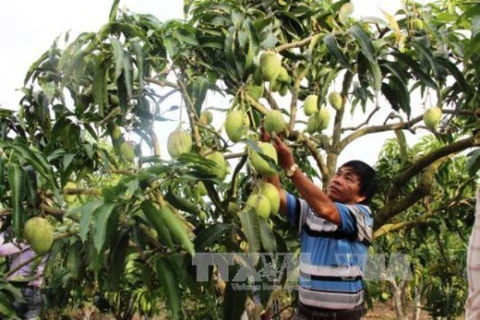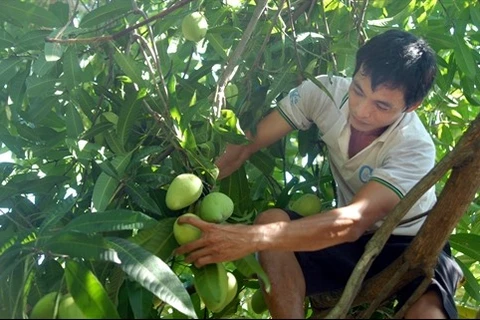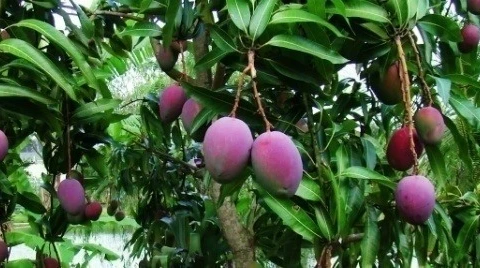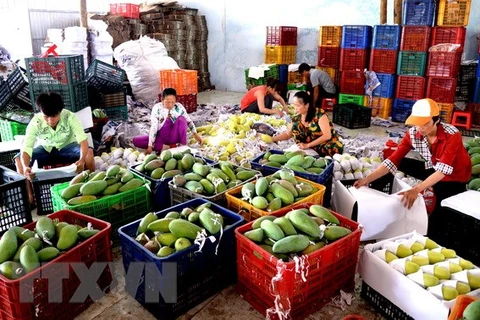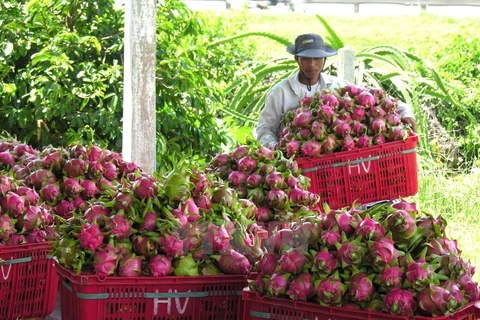Dong Thap (VNA) – A seminar on post-harvest technology for mangos took place in Cao Lanh city, the Mekong Delta province of Dong Thap on June 19.
Speaking at the event, Vice Chairman of the provincial People’s Committee Nguyen Thanh Hung said with a total area of nearly 43,000ha and an annual output of 500,000 tonnes, mango is a major source of income for many farmers in the Mekong Delta, notably Hoa Loc and Cat Chu mangos which have been popular at home and exported to the Republic of Korea, Japan, Australia, China and Russia.
Among 13 regional cities and provinces, Dong Thap is home to 9,200ha of mangos - the largest area in the region - with an annual output of nearly 95,000 tonnes, making it one of the five major staples in the province, he said.
Participants analysed the situation and development orientations for the mango farming sector, saying that the post-harvest losses accounts for over 27 percent.
The model of “advanced centre” for mango harvesting, processing, packaging, preservation and transportation was introduced.
Domestic and foreign exporters admitted that despite high production, Vietnamese mangos qualified for export remain modest. Post-harvest processing is almost done by hand while transportation costs are high, making it hard for Vietnamese mangos to compete with others from foreign countries.
Nguyen Minh Tien, from the Coordinating Office for the National Target Programme on New Rural Development, briefed participants about the “advanced centre” model that was launched in 2017 with the support of the United Nations Industrial Development Organisation (UNIDO).
Conducted in Kim Nhung Ltd Company in Cao Lanh city, the model has successfully built a system to process, preserve and package nearly 30 tonnes of mangos per day, the first of its kind in the Mekong Delta to use eco-friendly technology to help mangos navigate demanding markets such as Australia, Russia and the Republic of Korea.-VNA
VNA

